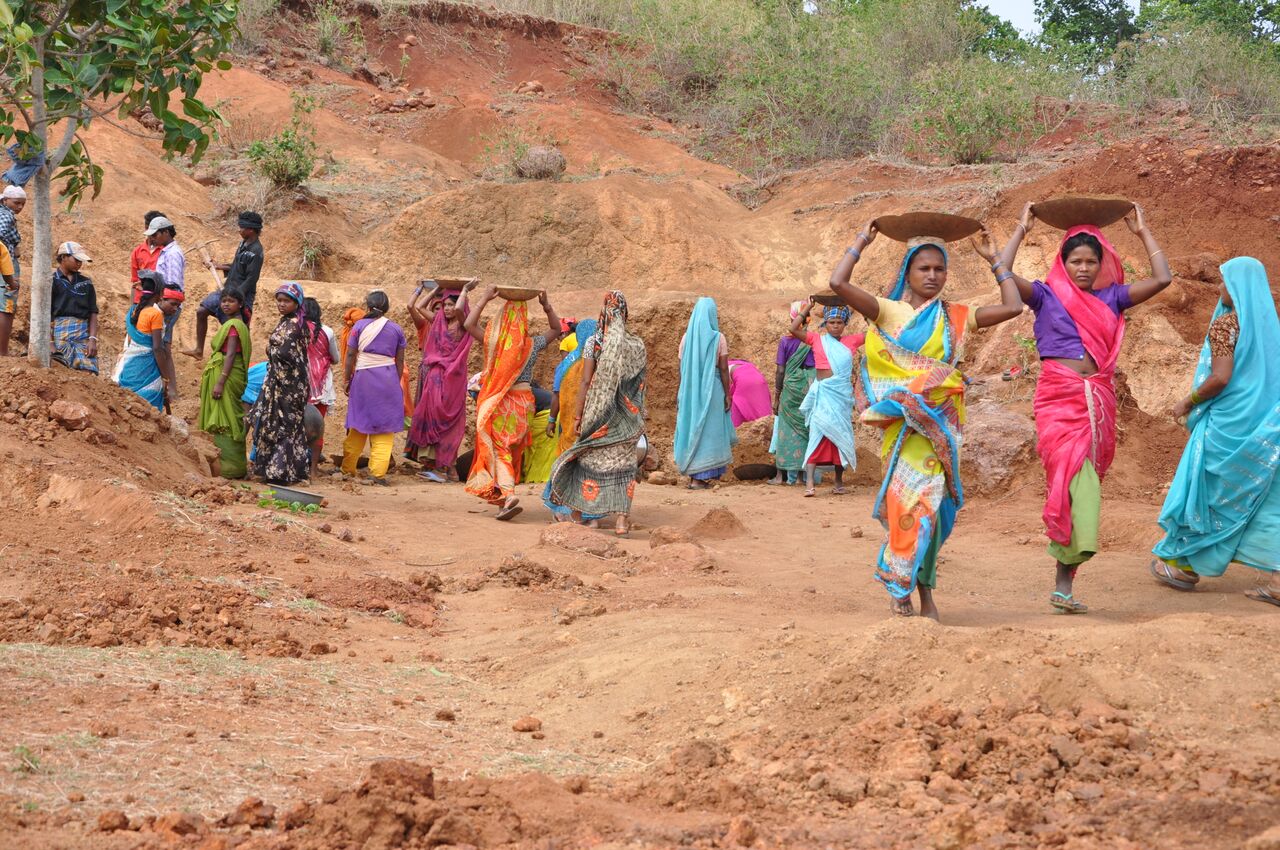Employment Generation Under MGNREGA

Mahatma Gandhi National Rural Employment Guarantee Scheme (MGNREGS) has made significant strides in providing wage employment to rural households in India. As of July 21, 2025, approximately 3.83 crore households have benefited from the scheme, generating a remarkable 106.77 crore person-days of employment. To ensure timely wage payments, the Government of India has implemented a comprehensive Standard Operating Procedure (SOP) that mandates payments within 15 days of work completion, alongside various technological interventions aimed at enhancing efficiency and transparency.
Timely Wage Payments Ensured
The Mahatma Gandhi NREGS guarantees that beneficiaries receive their wages promptly after completing their work. According to the provisions of the Act, payments must be made within 15 days. To facilitate this, the Government has issued a detailed SOP to all states and union territories, outlining fixed timelines for each stage of the wage payment process. This includes everything from uploading muster rolls to approving Financial Transaction Orders (FTOs). The Ministry of Rural Development, in collaboration with state governments, is actively working to improve the efficiency of wage payments. States have been encouraged to generate pay orders promptly to avoid delays.
The Ministry has also taken several measures to enhance the timely payment of wages. These initiatives include improving the National Electronic Fund Management System (Ne-FMS) and conducting intensive consultations with state governments and stakeholders. This collaborative approach aims to address pending claims and ensure that compensation for delays is processed efficiently. Regular reviews of the payment status are conducted during meetings with state representatives to monitor progress and identify areas for improvement.
Technological Interventions for Efficiency
To further streamline the payment process, the Ministry has introduced various technological interventions. One of the key initiatives is the Direct Benefit Transfer (DBT) system, which allows wages to be transferred directly from the central account to workers’ bank accounts. This method minimizes the involvement of intermediaries, thereby reducing the risk of fund misappropriation. Nearly all funds are now managed electronically, ensuring that wage payments are made through the DBT protocol.
Another significant reform is the Aadhaar Payment Bridge System (APBS). This system enables benefits to be credited directly to workers’ bank accounts based on their Aadhaar numbers. By simplifying the delivery process, APBS enhances targeting and efficiency while reducing payment delays. This approach promotes greater accountability and transparency in the system.
Additionally, the National Mobile Monitoring System (NMMS) has been implemented to capture real-time attendance through geo-tagged photographs at work sites. This technology ensures accurate attendance records, which are crucial for timely wage payments.
Awareness and Accessibility Initiatives
The Mahatma Gandhi NREGS serves as a vital safety net for rural households, providing employment when no other opportunities are available. To increase awareness and participation in the scheme, the Central Government has launched several initiatives. These include Information Education and Communication (IEC) campaigns, which utilize wall paintings and other outreach methods to disseminate information about the scheme’s provisions.
Efforts are also underway to expand the scope of the demand registration system, ensuring that all requests for work under MGNREGS are recorded. Community involvement is encouraged through participatory planning and approval processes in Gram Sabhas. Additionally, the organization of ‘Rozgar Diwas’ aims to facilitate job opportunities for rural households.
According to Section 7(1) of the Mahatma Gandhi National Rural Employment Guarantee Act, if an applicant is not provided employment within 15 days of applying, they are entitled to a daily unemployment allowance. This provision underscores the government’s commitment to ensuring that rural households have access to employment opportunities.
Observer Voice is the one stop site for National, International news, Sports, Editor’s Choice, Art/culture contents, Quotes and much more. We also cover historical contents. Historical contents includes World History, Indian History, and what happened today. The website also covers Entertainment across the India and World.

